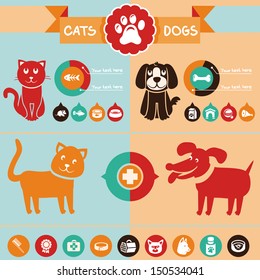How To Spot A Quality Dog Daycare What To Look For
How To Spot A Quality Dog Daycare What To Look For
Blog Article
Can Dog Daycare Reason Ailment?
Pet dogs in day care receive lots of workout, socialization with other pets and one-of-a-kind experiences. This can be especially valuable for puppies and dogs with behavior problems.
There are several legal factors to consider you require to think about when starting a doggy day care company. These include the framework of your service and conformity with federal government laws.
1. Pooch Distemper
Canine distemper is spread through direct contact with the bodily fluids and waste of an infected pet dog, however it can additionally be sent via shared water and food bowls or through airborne droplets. This extremely infectious disease is most hazardous for young puppies, however it can influence pets of any kind of age and is fatal for many if left untreated.
First signs and symptoms of canine distemper usually mimic a common cold, including runny eyes and nose with watery or pus-like discharge. As the illness advances, a canine will develop fever, coughing, reduced appetite, vomiting and diarrhea. The infection can additionally strike the nerves, leading to seizures, jerking and partial or total paralysis.
Respectable day cares minimize exposure to infection by requiring inoculations, regular health examinations and comply with stringent hygiene protocols. If your pup appears extremely worn out or limping, a day of rest may help him recover, but you need to stay clear of taking him back to day care up until these signs clean up.
2. Kennel Cough
Kennel cough, also called transmittable canine tracheobronchitis or Bordetella, is a very infectious viral or bacterial illness that affects the respiratory system system. It's generally moved with the exchange of saliva or air droplets that an ill canine exhales. Social dogs go to greater threat for infection because of their regular interaction with one another, such as when they play, share food or water, smell each other or just meet in a crowded setting like a pet park or childcare.
One of the most common symptom of kennel cough is a relentless and strong cough that sounds like something embeded the throat or retching. Usually, pet dogs will cough up foamy white phlegm. If left without treatment, a pet dog can develop pneumonia and go to significant danger for life.
A trusted daycare center must have strict cleansing and hygiene procedures, sterilize all toys, food and water bowls consistently, and be open concerning their inoculation policies. Maintaining your pet dog as much as day on their inoculations, specifically for bordetella and canine flu, will significantly decrease their opportunities of acquiring the illness.
3. Parvovirus
Canine parvovirus, or parvo, is a very infectious viral illness that can be deadly for pups and young adult dogs with bad immune systems. It's most frequently spread out by direct contact with infected pet dog feces-- which can happen when pets smell, lick, or taste contaminated feces-- and indirectly from infected people, objects, or atmospheres (like kennels, grooming spaces and lawns). Pups and canines without full vaccination backgrounds are particularly susceptible to parvo.
The infection is extremely durable, surviving in the atmosphere for up to 9 years, and boarding kennels dogs can easily be moved between pets by contact via feces or on shoes, garments, and bedding polluted with parvovirus. If not dealt with immediately with IV liquids, electrolyte equilibrium, vomiting control drugs and antibiotics to avoid secondary microbial infections, a canine will swiftly dehydrate and create severe looseness of the bowels, which results in shock and blood poisoning. Parvo is challenging to heal when a pet has come to be ill, but with proper veterinary treatment, many young puppies do endure this health problem.
4. Canine Influenza
Canine flu virus is very contagious and spreads with direct get in touch with, sharing food and water bowls, licking or nuzzling other pet dogs, through airborne beads, and through polluted surfaces. Vaccination works in reducing the danger of infection and episodes.
Many impacted pets develop a moderate respiratory infection with a cough that lasts 1-3 weeks. They might also have nasal and ocular discharge, sneezing, and sleepiness. Some of the most severe cases lead to pneumonia and a high fever.
If your pet exhibits any one of these symptoms, do not bring them back to childcare until they are healthy. If your pet is showing signs of severe tiredness or hopping, talk to your veterinarian right now and make sure they are on healthiness supplements to aid build their immunity. A vet will assess your pet dog for signs and symptoms of the flu by taking a sample from the nose or throat, and blood tests can be done to validate.